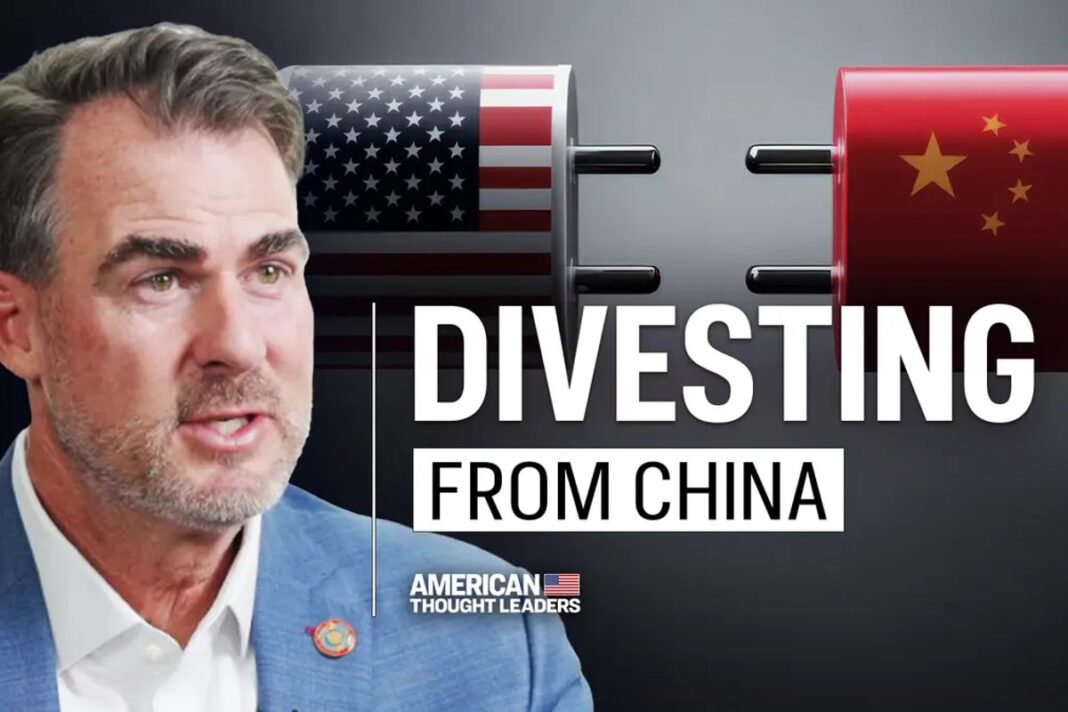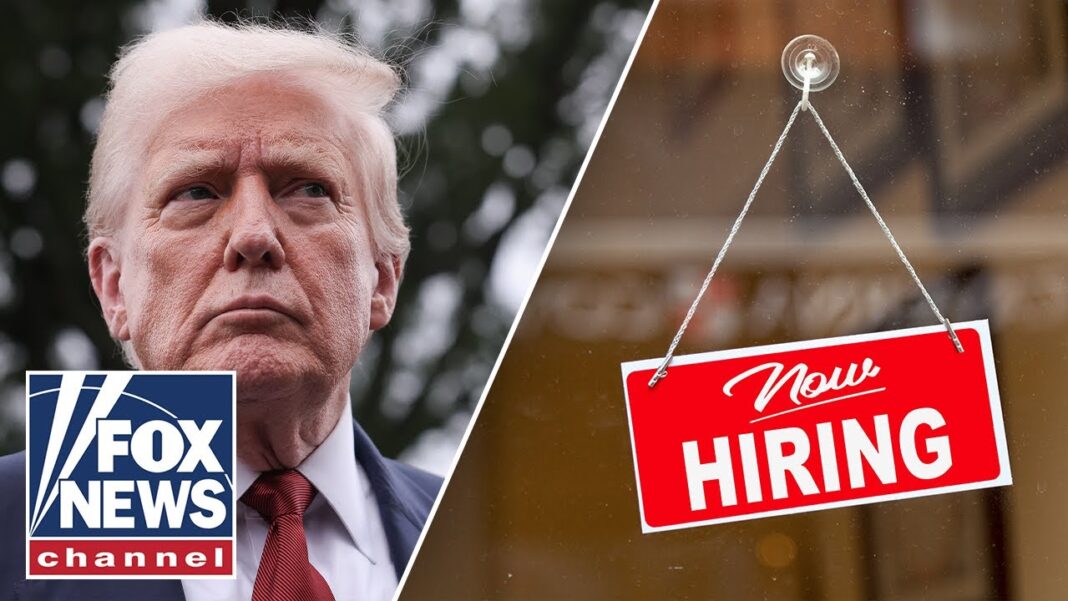China is ‘literally coming directly to the states,’ Oklahoma Gov. Kevin Stitt said.
Oklahoma Gov. Kevin Stitt said China has been trying to exert influence at the state level across the United States, which he has rejected while also creating his own international strategy to avoid reliance on China-made imports.
“They’re going to the states now because Congress is so dysfunctional. It’s so political. It’s so partisan that they’re literally coming directly to the states,” Stitt said in an interview with “American Thought Leaders” that aired on Aug. 1.
Regarding Beijing’s attempts to influence him, Stitt said that he has effectively blocked them. “They don’t reach out to me,” he said. “I’ve shut them down.”
Stitt, now serving his second term as governor after winning reelection in 2022, recalled the supply chain disruptions that occurred during the COVID-19 pandemic. In response, he said he had his advisors look into the issue and that those disruptions would be 20 times worse in the event of a conflict between China and Taiwan.
In June last year, Stitt issued an executive order to secure Oklahoma against threats posed by foreign adversaries, particularly the Chinese Communist Party (CCP). The order mandates the Office of Management and Enterprise Services (OMES) to conduct a wide range of tasks, including conducting an annual statewide risk assessment to identify vulnerabilities, such as cybersecurity threats, and risks to the electric grid, water infrastructure, and supply chains.
The order also instructs OMES to audit critical state procurements and directs state agencies to reduce reliance on single-source procurement.
“It’s a national interest for us to bring the supply chain closer to home. It also helps us target certain things and promote economic development in our state,” Stitt said.
International Strategy
While securing his state from the CCP’s aggression, Stitt said he has implemented an international strategy, having met with 80 different ambassadors to put his state on their radar, and signed memoranda of understanding (MOUs) with multiple countries, including the UK and Denmark.
By Frank Fang and Jan Jekielek








